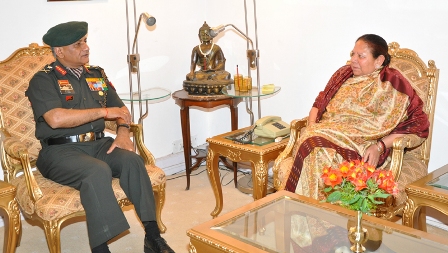New Delhi, June 29 (IANS) The BJP Saturday asked Prime Minister Manmohan Singh to reject the Mayaram Committee’s recommendations to allow 100 percent FDI in private security agencies, saying that the move was an “ill-conceived idea” and could impact national security.
Bharatiya Janata Party (BJP) leader Murli Manohar Joshi told media persons here that he had written to the prime minister on the issue, contending the recent reports on recommendations by the panel on removing FDI cap on sectors with implications on national security were “a cause for serious concern”.
He said it was “disappointing” that Finance Minister P. Chidambaram had endorsed the report of the committee, set up by his ministry, and had forwarded it to the commerce ministry’s department of industrial policy and promotion for changes in consolidated Foreign Direct Investment (FDI) policy.
“100 percent FDI on private security agencies means 100 percent foreign control,” Joshi said, noting the private security sector in India was governed by a 2005 act which clearly stipulated majority Indian ownership and control as a precondition for issue of license to operate.
“Attempt to amend the FDI policy for the private security sector through DIPP without taking cognizance of PSAR Act, 2005, and without any consultation with the parliamentary standing committee on home affairs is not only a serious technical anomaly with legal implications but also against parliamentary protocols,” he said.
He noted MPs during discussion in parliament on phone tapping had urged the home ministry to design provisions for greater regulation and control over the private security and detectives industry.
Joshi said any change in regulation that enables foreign nationals or foreign companies to directly own and control private security and detective services agencies in the country can pose to be a serious threat to national security.
He said private security was employed at thousands of establishments including government sector and sites of strategic significance like labs, defence complexes, private ports and airports, oil refineries, power projects, gas pipelines, IITs/IIMs and even national monuments like the Red Fort and Qutub Minar.
“They are deployed at highly sensitive sites and also have access to technological equipment that could be misused by foreign entities. It is beyond understanding how the government is willing to allow 100 percent foreign ownership and control of such private security organizations,” he said.
He said there were reports that home ministry was considering a proposal to allow private security agencies holding valid licenses to obtain firearms for security of their clients and it is even more dangerous to allow foreign ownership in such a scenario.
Joshi said the private security sector had attracted less than $50 million worth of foreign investment from 2005 to 2013) and claimed allowing 100 percent FDI would not yield any significant gains.
“The proposal for change in FDI cap in private security sector is an ill-conceived idea,” he said, adding it would need an amendment to the 2005 act.
Answering a query over FDI, he said foreign investment was not coming in sectors opened for it due to the “inefficiency” of the government.
He said value of rupee was falling and government may have to resort to further borrowing from institutions like the International Monetary Fund.
“You are going towards 1991 (when economic situation was difficult),” he said.
The opinions, beliefs and viewpoints expressed by authors, news service providers on this page do not necessarily reflect the opinions, beliefs and viewpoints of Hill Post. Any views or opinions are not intended to malign any religion, ethnic group, club, organization, company, or individual.
Hill Post makes no representations as to the accuracy or completeness of any information on this site page.


